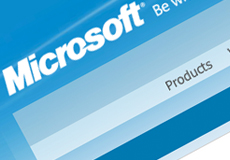By
Rob ScottJanuary 17, 2014
Google released a new app this week in Apple’s App Store that allows users to watch their Google media content directly from an iPhone or iPad. The app, called Google Play Movies & TV, is a significant step in the company’s content strategy, since iOS users can now watch movies and television shows purchased or rented on Google Play. However, similar to the Kindle app, users will not be able to buy or rent content directly from the app itself, but will need to access the browser. Continue reading Google Play Movies & TV App for iOS Has Chromecast Support
By
Erick MoenJanuary 7, 2014
Their last appearance at CES sported a “gaze-controlled” version of the arcade game “Asteroids.” This time around Tobii is dreaming bigger and announced a new partnership with SteelSeries to prove it. The eye-tracking experts are working with the gaming peripheral manufacturer to deliver a unique controller capable of navigating the virtual world in a more natural way. As these devices won’t be available until the middle of this year, however, Tobii is whetting appetites with its new Windows-ready EyeX controllers. Continue reading Tobii Sets Sights on Gamers and Consumers with EyeX Tech
By
Cassie PatonJanuary 7, 2014
Tobii announced its partnership with SteelSeries to bring eye tracking to video games with a new sensor bar and the EyeX engine. A prototype at CES demonstrated in-game navigation, menu selection and aiming by using nothing more than players’ eye movements. Developers can preorder the SDK now for delivery in March, and they’ll be able to designate standard mouse and keyboard functions to gaze controls. The device is expected to cost around $100. Continue reading Tobii: Eye-Tracking Controls Finally Coming to Video Games
By
Cassie PatonDecember 18, 2013
Google is planning to bring Chromecast to international markets and make casting available on multiple devices with thousands of apps. The popular device’s SDK, which is still being finalized, will be opened up to help make apps compatible with the $35 dongle, and Google is partnering with several companies to bring its functionality to a number of other devices. Hundreds of developers have already signed up to add Chromecast capabilities to their apps. Continue reading Google’s Chromecast SDK Headed for International Markets
By
Rob ScottNovember 21, 2013
Google unveiled its Glass Development Kit (GDK) earlier this week at a Glass hackathon in San Francisco, inviting developers to create third party apps for its wearable technology. The company is looking to lure programmers with parts of Glass that were previously unavailable. Developers can now build Glass apps that work offline, in real time, and use the hardware accelerometer and GPS. Until now, developers were only able to work with the Mirror API. Continue reading Google Aims to Attract Programmers with Glass Developer Kit
By
Cassie PatonOctober 31, 2013
Samsung made some significant announcements at its Developers Conference earlier this week that indicate it is making a play for greater control over Android. Among the announcements, the company plans to release five new SDKs for phones, tablets, TVs and more. The developer kits include support for apps and features involving pen and gesture controls in addition to media playback from mobile devices. Samsung now sells more Android devices than any of its competitors. Continue reading Samsung Edges Out the Competition for Android Development
By
Cassie PatonOctober 30, 2013
Nielsen confirmed this week that starting in 2014, television ratings and viewership consumed on digital devices will be measurable. The company is currently working on the software developer kit for its clients to make that possible. The move marks a significant change considering that more people are now consuming media on digital devices than they are on traditional TV, and that segment of viewers has been sorely missing in rating calculations. Continue reading Nielsen to Include Mobile Viewing in Its Television Ratings
By
Valerie SavranSeptember 3, 2013
Facebook has partnered with game engine Unity to infiltrate the world of Web and mobile 3D games. The social network is releasing a software development kit with Unity that will allow game makers to incorporate Facebook tie-ins into games. Game developers for Unity will be able to create Facebook hooks for Web, iOS and Android. The ultimate goal is to attract more developers to build a wider array of games for the Facebook platform. Continue reading Facebook Partners with Unity to Attract Core Game Developers
By
Chris CastanedaSeptember 3, 2013
Google is beginning to restrict developer access to Chromecast and the Android operating system. The company is disabling workarounds of its Chromecast streaming device and other app options on Android. The move may be bad news for developers as certain functions are no longer available, but it may be good news for consumers if the user experience becomes more refined and features less ads on the new Chromecast and maturing Android. Continue reading Google Limits Some Development on Chromecast and Android
Belgium-based SoftKinetic built what it says is the world’s smallest 3D camera that recognizes gestures. The company has teamed with Intel to take the next step toward “perceptual computing,” which entails using more senses to interact with computers. The small 3D gesture-recognition camera, which is based on “time-of-flight” technology, will be used by Intel in its collection of perceptual computing technologies next year. Continue reading SoftKinetic and Intel Pursue Era of Perceptual Computing

